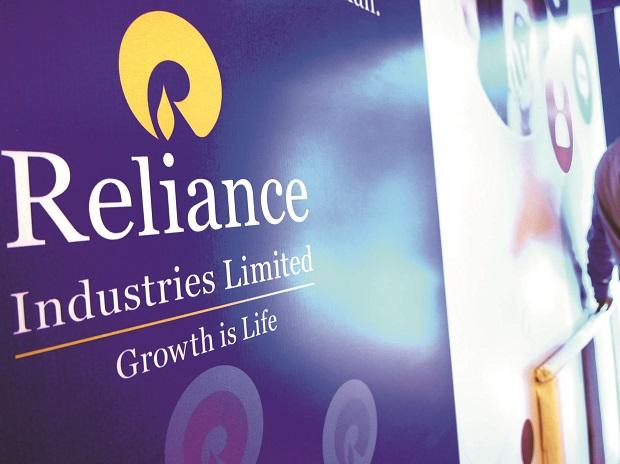Reliance Industries Hints It's No Longer Desperate For Saudi Aramco Deal

Mukesh Ambani announcing a delay in the proposed deal with Saudi Aramco has raised concerns on whether the Reliance Industries-Saudi Aramco transaction is less desirable now.
“Due to unforeseen circumstances in the energy market and the Covid-19 situation, the deal has not progressed according to the original timeline,” Ambani, chairman and managing director for RIL, informed shareholders on Wednesday. The billionaire punctuated his remarks on the deal saying “our equity requirements have already been met”.
A year ago, in August, when Ambani first announced Saudi Aramco’s intent to invest in RIL’s oil to chemicals (O2C) business, the deal was crucial for RIL’s net debt free target. In less than 12 months, the needs and options for both the seller and buyer has changed. RIL now claims to be net-debt free and may not need the cash proceeds. For Saudi Aramco, stake sale in Bharat Petroleum Corporation (BPCL) presents another opportunity to participate in India’s fuel demand growth story.
“Ambani’s comment on the deal is a message to Aramco – RIL is no longer desperate for the deal,” said an analyst who did not wish to be identified.
In less than four months, RIL has raised Rs 2.12 trillion through a rights issue, combined investments in Jio Platforms, and investment by BP in its fuel retail business. This, Ambani in his address said, is in excess of the company’s net debt of Rs 1.61 trillion as of March.
“However, if the Aramco deal happens, the cash proceeds will help buffer any shocks in case RIL’s infrastructure investment trust (InvIT) plan does not work out. The deal there is yet to be completed,” the analyst quoted earlier in the story said. RIL transferred its telecom tower and fiber assets, along with the related liabilities, to two separate InvITs last year.
Not much is clear on Saudi Aramco’s interest in the deal, there isn’t an official word yet.

Analysts point out that with Covid-19 crisis spiraling and the technological advancements in electric car mobility, concerns on Aramco’s fossil fuel bet remain. “The work-from-home trend has changed mobility needs and electric cars are fast progressing technology-wise. This could well accelerate the decline of fossil fuel requirements. An oil company like Aramco also needs to de-risk,” said the analyst. On Thursday, a Bloomberg report said Saudi Aramco has pledged to reduce the carbon intensity of its operations.
A few other analysts said the BPCL stake sale process offers the oil producer another option to tap into India’s fuel demand. “Covid-19 and its impact on fuel demand is a near-term phenomenon. Companies such as Saudi Aramco base their decisions on long-term perspective. India is still an attractive market for an oil company like Aramco. However, with BPCL, Aramco also has options to choose in India,” said Nitin Tiwari, analyst with Antique Stock Broking.
RIL, meanwhile, is expected to go ahead with other regulatory approvals to facilitate the deal. Ambani on Wednesday said RIL would approach the National Company Law Tribunal with a proposal to spin off the O2C business into a separate subsidiary to facilitate this partnership opportunity and complete this process by early 2021.
In 2019, when the deal was first announced, it was expected to fetch $15 billion. “While initially the transaction was valued at $75 billion, after Covid-19, overall valuation for refining companies have taken a hit. So, it remains to be seen if valuations hold in this case,” Tiwari said. Reuters in a report on Thursday, quoting sources said: “With the energy market hit by falling demand for crude due to Covid-19, Aramco wants the Indian conglomerate to review the $15 billion it agreed to sell the stake for last year.”
Stablecoin The Future Of Currency?
The payments system is undergoing a quiet but consequential shift. What was once the exclusive preserve of central banks... Read more
BoE Loosens Capital Rules
The Bank of England has taken a significant step towards easing post-crisis regulation by lowering its estimate of the c... Read more
Monzo Looks For US Banking License
Monzo is preparing a renewed push to secure a US banking licence, four years after abandoning its first attempt when tal... Read more
Crypto Firms Push Into US Banking
America’s cryptocurrency companies are scrambling to secure a foothold in the country’s traditional banking system, ... Read more
Parallel Banking: Stablecoins Are Now Global
Parallel Banking: How Stablecoins Are Building a New Global Payments SystemStablecoins—digital currencies pegged to tr... Read more
JPMorgan Deploys AI Chatbot To Revolutionize Research And Productivity
JPMorgan has deployed an AI-based research analyst chatbot to enhance productivity among its workforce, with approximate... Read more

